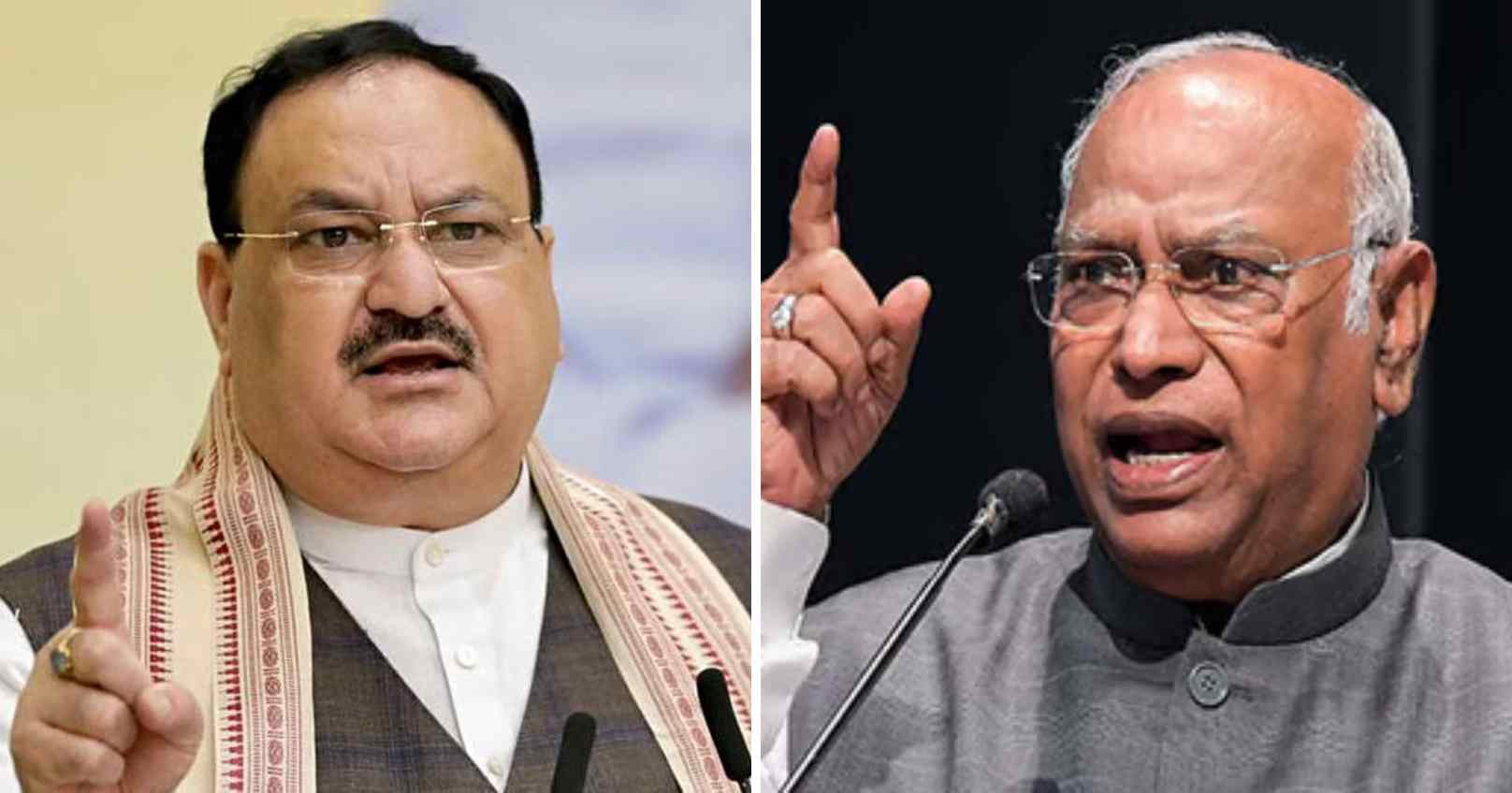In a tense exchange in Parliament, Rajya Sabha Chairman Jagdeep Dhankhar summoned BJP’s JP Nadda and Congress leader Mallikarjun Kharge after a heated row erupted between the two parties over claims linking Congress to American-Hungarian financier George Soros.
The confrontation began when BJP Leader of the House, JP Nadda, accused the Congress of acting as a “tool” for foreign entities, specifically pointing to alleged links between the party and George Soros. Nadda’s remarks, suggesting that the opposition was collaborating with foreign forces to destabilize India, sparked immediate outrage from Congress members.
In response, Congress President Mallikarjun Kharge dismissed the accusations as “lies,” asserting that his party remained firmly committed to India’s democratic values. He accused the BJP of using these unfounded allegations as a distraction from the country’s pressing socio-economic challenges. Kharge's rebuttal was swiftly followed by protests from Congress MPs, who demanded a debate on the issue.
The heated exchange disrupted proceedings in both the Rajya Sabha and Lok Sabha, leading to multiple adjournments. The Upper House saw three adjournments, including two before lunch. After the second adjournment, Nadda took the floor and drew attention to the alleged links between Sonia Gandhi, Congress leader and co-president of the Forum of Democratic Leaders in Asia Pacific, and the Soros Foundation. He claimed these connections posed a national security risk, raising concerns about the impact on India’s international image.
“This is a matter of great concern for national security, and the people are worried,” Nadda said, accusing the Congress of playing with the country's security. He urged for an immediate discussion on the issue.
Congress leaders, including Kharge, Jairam Ramesh, and Pramod Tiwari, strongly rejected these claims and questioned how such remarks were allowed to be made without proper scrutiny. Kharge pointed out that the Chairman had previously rejected several notices from BJP MPs seeking a discussion on the topic, questioning the consistency of the Speaker's approach.
Earlier, BJP leaders had also targeted Congress over alleged ties to the Soros-backed OCCRP (Organized Crime and Corruption Reporting Project), accusing them of using the organization’s reports to criticize India and damage the country’s economy. The BJP’s focus on these allegations marks a shift in its parliamentary strategy, with repeated references to Soros and his alleged role in destabilizing India.
Last week, the BJP had also lashed out at Rahul Gandhi, calling him a “traitor” and linking him, Soros, and some American agencies in an alleged “triangle” aimed at undermining the nation. These attacks coincide with ongoing opposition efforts to raise issues like violence in Uttar Pradesh’s Sambhal and the indictment of Adani Group executives in the United States.
The BJP’s allegations are also linked to a recent report by French media outlet Mediapart, which suggested hidden connections between OCCRP and the US government. In response, the US government has strongly rejected the claims, reiterating that its funding of independent organizations like OCCRP does not influence their editorial decisions.
The row over George Soros’ alleged influence highlights the growing political tensions between the ruling BJP and the opposition Congress as both sides prepare for a heated parliamentary session.







